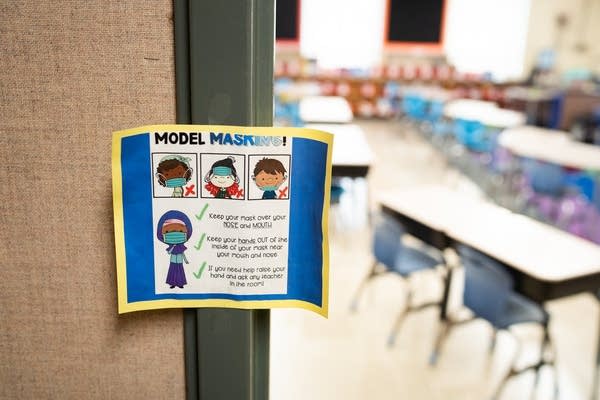No scientific evidence masks harm kids' health

Signs giving students tips on proper mask-wearing hang in the doorway of a classroom at Kennedy Elementary in Hastings, Minn., on Sept. 1, 2020.
Evan Frost | MPR News 2020
Go Deeper.
Create an account or log in to save stories.
Like this?
Thanks for liking this story! We have added it to a list of your favorite stories.


